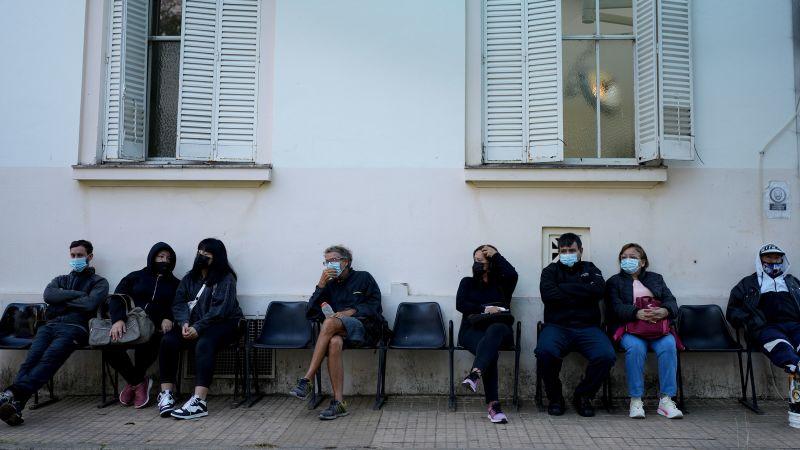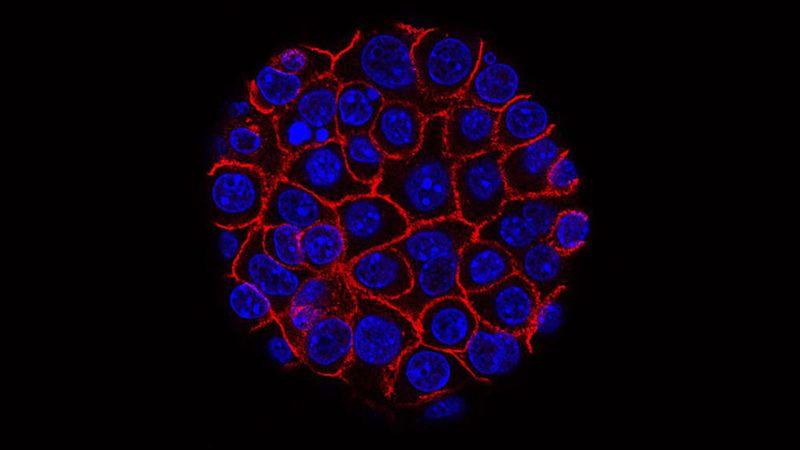Cases of norovirus are starting to increase as spring approaches, including an outbreak on a cruise ship.
The more popular moniker for norovirus is “the stomach flu.”. We’re here to help you avoid illness this season, regardless of how unsettling this explanation makes norovirus look.
Get all the information you need about the norovirus here, along with safety advice from the Centers for Disease Control and Prevention (CDC) and information on symptoms.
The norovirus: what is it?
Vomiting and diarrhea are symptoms of the highly contagious norovirus.
In the US, it is the main factor contributing to foodborne illness.
The term “stomach bug” or “stomach flu” may be familiar to you. The most typical signs and symptoms of a norovirus in 2024 are vomiting, diarrhoea, nausea, and stomach pain.
Fever, headaches, and body aches are less frequent symptoms.
Dehydration can also result from diarrhea and vomiting.
Typically, symptoms last one to three days.
How is the norovirus spread?
Close contact with an infected person can result in the transmission of norovirus to you.
This might occur if you care for them, share utensils, or consume food that has been handled by them.
Other ways that the norovirus can spread include eating or drinking infected food or drink, as well as touching infected surfaces and then touching your face.
Is it possible to cure norovirus?
There’s no vaccine against norovirus, unlike viruses like COVID-19 or influenza.
Similarly, the norovirus itself has no known cure; only its symptoms.
Nevertheless, you can lessen your risk of becoming ill.
How to prevent contracting the norovirus Wash your hands frequently: After coming into contact with the virus, hands can transfer the virus to your mouth.
Washing your hands adds an additional layer of protection to your health, even though you might try to avoid getting sick by simply keeping your fingers out of your mouth.
It will take 20 seconds to lather your hands with soap and then rinse them with warm water to properly wash them.
Hand sanitizer is not very effective against norovirus, according to the CDC.
Put on disposable gloves to protect your hands even further when cleaning up after someone who has the norovirus.
The Venom Steel Nitrile Gloves are the most comfortable and long-lasting disposable gloves we’ve tested.
Spotlessly clean dishes Using a high-quality dish soap, like Dawn Ultra, is one more thing you can do to ensure your loved one’s dishes are free of any viral contamination.
Together with removing stubborn stains, it also has a pleasant scent.
Using disposable plates will eliminate the need to handle contaminated dishes while someone is ill with the norovirus.
Clean high-contact surfaces: Before the virus has an opportunity to get on your hands, you should disinfect high-contact surfaces in and around your home as an additional precaution against norovirus.
This includes light switches, doorknobs, and TV remotes, to mention a few.
The virus can be completely eliminated by letting the wiped area sit for at least 10 minutes. You can accomplish this with disinfectant wipes or spray.
Wash fruits and vegetables: Rinsing your produce well is another way to prevent contracting norovirus, which can also spread through unwashed food.
You can simplify this by using a colander.
Because it has good drainage, is easy to hold, and stays in place, our favorite colander is this one made by OXO.
Water is recommended to be consumed in large quantities when treating norovirus infection for a variety of reasons.
Drinking your own water can reduce your chance of consuming contaminated water and thus getting the virus.
Since dehydration and the norovirus share many symptoms, such as vomiting, diarrhea, nausea, and stomach pain, drinking water may help you determine whether or not you have the illness.
Last but not least, if the worst happens and you do become ill, drinking enough water will hasten and ease your recuperation.
You might wonder if there’s something in the water if your intestines have become knotted and you find yourself sitting on the porcelain throne more frequently. There’s a good chance that there is. Norovirus cases are starting to increase as spring approaches, including an outbreak on a cruise ship.
The more popular moniker for norovirus is “the stomach flu.”. Regardless of the level of fear this clarification evokes, our goal is to assist you in avoiding illness this season. This is all the information you require about the norovirus, including symptoms and safety advice from the Centers for Disease Control and Prevention (CDC).
Norovirus: What is it?
The virus known as norovirus is very contagious and causes diarrhea and vomiting. In the US, it is the main cause of foodborne illness. Some people refer to norovirus as “the stomach flu” or “the stomach bug.”. “.
2024 symptoms of norovirus.
Nausea, vomiting, diarrhea, and stomach pain are the most typical signs of a norovirus. Fever, headaches, and body aches are less frequent symptoms. Moreover, dehydration can also result from diarrhea and vomiting.
Usually, symptoms subside after one to three days.
How is the norovirus transmitted?
If you are in close proximity to someone who has the norovirus, you could get it yourself. You run the risk of getting sick if you handle their food, look after them, or share cutlery. Additionally, consuming or drinking contaminated food or drink, as well as touching infected surfaces and then touching areas of your face, can all spread the norovirus.
Is it possible to treat norovirus?
There is no vaccine against norovirus, in contrast to viruses like influenza or COVID-19. Similarly, there are only therapies for the symptoms of the norovirus, not the virus itself. Nevertheless, there are steps you can take to lessen your risk of illness.
How to guard against the norovirus.
Hand-wash frequently.
When your hands come into contact with the virus, they can transfer the norovirus to you by touching your mouth. Even though you might try to avoid getting sick by just not putting your fingers in your mouth, washing your hands will add an extra layer of defense and make staying healthy much simpler.
You must lather your hands in soap for 20 seconds and then rinse them with warm water to properly wash your hands. According to the CDC, hand sanitizer is not very effective at fighting norovirus.
Put on some gloves.
When cleaning up after someone who has the norovirus, put on disposable gloves for added hand protection. The Venom Steel Nitrile Gloves are the most comfortable and long-lasting disposable gloves we’ve tested.
Empty the dishes.
In a similar vein, if you’re providing care for someone who has norovirus, you should also thoroughly clean their dishes using a high-quality dish soap like Dawn Ultra, which is our personal favorite. It has a fruity scent and effectively removes stubborn stains. Using disposable plates will allow you to avoid handling contaminated dishes while someone is ill with the norovirus.
Surfaces that are in close contact should be cleaned.
Cleaning high-contact surfaces in your house before the virus gets a chance to get on your hands is another method of staying safe from norovirus. Doorknobs, light switches, and TV remote controls are a few examples of this. To completely eradicate the virus, leave the area you’ve wiped down for at least ten minutes after using disinfectant wipes or spray.
Clean your produce.
Rinsing your produce well is another way to prevent contracting norovirus, which can also spread through the consumption of unclean food. This can be made simpler by using a colander. This OXO colander is our favorite because it has excellent drainage, is easy to grip, and stays in place.
Have a lot of water.
Water consumption is advised when dealing with norovirus for a number of reasons. Consuming your own water can reduce the possibility of consuming tainted water and thus catching the virus. Due to the fact that dehydration and the norovirus share many symptoms, such as nausea, vomiting, diarrhea, and stomach pain, drinking water may help you determine whether you have the illness. Lastly, maintaining hydration will hasten and lessen the severity of your recuperation in the unlikely event that you become ill.




